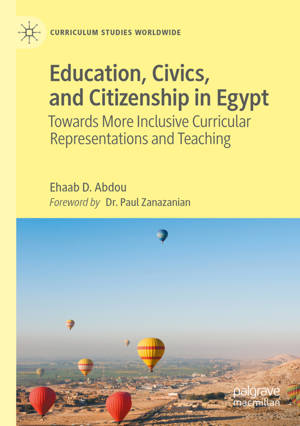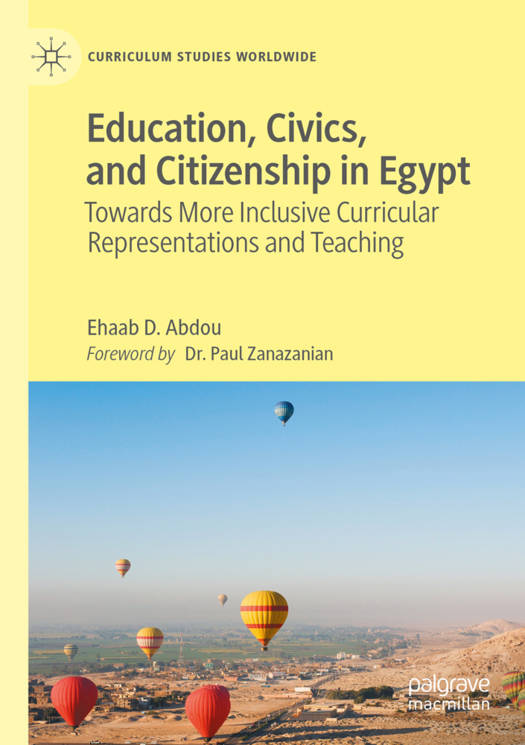
- Retrait gratuit dans votre magasin Club
- 7.000.000 titres dans notre catalogue
- Payer en toute sécurité
- Toujours un magasin près de chez vous
- Retrait gratuit dans votre magasin Club
- 7.000.0000 titres dans notre catalogue
- Payer en toute sécurité
- Toujours un magasin près de chez vous
Education, Civics, and Citizenship in Egypt
Towards More Inclusive Curricular Representations and Teaching
Ehaab D AbdouDescription
This book explores how to render curricular representations more inclusive and how individuals' interactions with competing historical narratives and discourses shape their civic attitudes and intergroup dynamics. Based on ethnographic research in the Egyptian context, it offers insights for curriculum developers, teacher educators, and teachers interested in the development of critical citizens who are able to engage with multiple narratives and perspectives. Drawing on theorizations of historical consciousness, critical pedagogy, and critical discourse analysis, it demonstrates the need for more nuanced and holistic analytical frameworks and pedagogical tools. Further, it offers insights towards building such analytical and pedagogical approaches to help gain a deeper understanding of connections between students' historical consciousness tendencies and their civic engagement as citizens.
Spécifications
Parties prenantes
- Auteur(s) :
- Editeur:
Contenu
- Nombre de pages :
- 295
- Langue:
- Anglais
- Collection :
Caractéristiques
- EAN:
- 9783031333484
- Date de parution :
- 02-07-24
- Format:
- Livre broché
- Format numérique:
- Trade paperback (VS)
- Dimensions :
- 148 mm x 210 mm
- Poids :
- 411 g

Les avis
Nous publions uniquement les avis qui respectent les conditions requises. Consultez nos conditions pour les avis.






